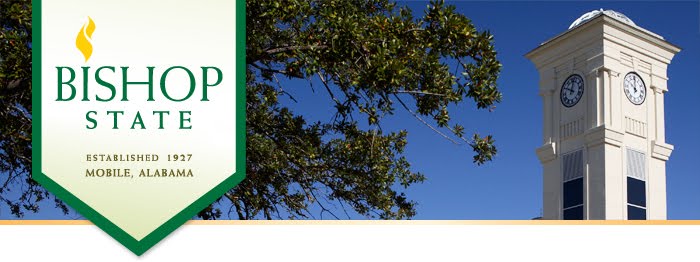With the increasing pressure on family budgets, community colleges have become smart alternatives to the more expensive four-year colleges and universities. There are many reasons that undergraduates choose to start their higher education in a community college such as Bishop State. Here are the top 10:
1. Affordability. Community colleges cost significantly less than state or private colleges and universities. This makes them a cost-effective way to complete the first two years of college. The money you save by living at home and going to your local community college can help pay for your last two years at a four-year college or university. Bishop State students often find they qualify for financial aid while attending. And in some cases, we offer work-study.
2. Convenience. Community colleges offer classes at times and locations that are convenient for students. Bishop State has four campuses in Mobile, and offers classes in the evenings plus the more traditional day classes. We also offer online classes as another alternative, making education convenient to those who must fit school around work or family responsibilities. Students can also choose to attend on a full-time or a part-time basis.
3. Open access. Community colleges do not have exclusive admissions standards that require high scores on an admissions test or a certain grade-point average from high school. Anyone with a high school diploma or equivalent can enroll at Bishop State. Some students even enroll while in high school to get a head start on college. Starting at a community college gives students a chance to improve a high school record before transferring to a university. Open access, however, does not mean that students can take any course; students usually are given placement examinations and then advised or placed into developmental courses if they are not up to college-level work.
4. Teaching quality. Community college classes are taught by faculty who care about teaching and student learning, not by teaching assistants. The faculty members at Bishop State are fully committed to teaching and are not pulled away by research interests or the need to publish in order to get tenure. Community colleges are accredited by the same agencies that accredit major universities.
5. Class size. Class sizes at community colleges are much smaller than those found in the freshman and sophomore years at public universities. Most classes at Bishop State have fewer than 18 students and provide more opportunities for students to interact with teachers and other students.
6. Support services. Community colleges offer a variety of services to help students. Services at Bishop State include counseling, advising, tutorials, financial aid, and library services. There are also computer labs on campus to make it easier for students to complete assignments.
7. Choices. Community colleges offer vocational programs and academic transfer programs. For example, Bishop State prepares many of the area’s registered nurses, physical therapy assistants, paramedics, HVAC technicians, and advanced-skill technicians. Of course, community colleges also offer courses that transfer into universities and count toward a bachelor's degree. Certificate programs can be completed in a year or less, while associate degree programs take two full years of course work.
8. Diversity. Community colleges serve the most diverse group of students in higher education. Students at Bishop State differ by age, ethnicity, degree of disability, socioeconomic status, and in many other ways. International students add yet another perspective. The opportunity to interact with and learn from students from many different backgrounds and with a variety of life experiences is a big advantage to starting at a community college.
9. Access to modern technology. Because of their strong partnerships with business and industry, community colleges often have cutting-edge equipment that is used by students in the classroom. Employers want job candidates who have experience with the equipment being used by industry, including the most modern computers and scientific instruments.
10. Good company. If you feel discouraged by the prospect of attending a local community college rather your first-choice university, here are some people who started in a community college: Joyce Luther Kennard, California Supreme Court justice; Jeanne Kirkpatrick, former United Nations (UN) ambassador; Jim Lehrer, news anchor; Robert Moses, choreographer and dance company founder; Sam Shepard, Pulitzer prize-winning playwright; James Sinegal, CEO of Costco; Maxwell Taylor, former chairman of the Joint Chiefs of Staff; J. Craig Venter, person who mapped the human genome; Richard Carmona, former U.S. surgeon general; Eileen Collins, first NASA female space shuttle commander; Nick Nolte, actor; Harry Reid, Senate majority leader; and Nolan Ryan, retired baseball pitcher. In addition, many thousands of nurses, skilled technicians, artists, police officers, firefighters, and EMTs got their start in community colleges.
